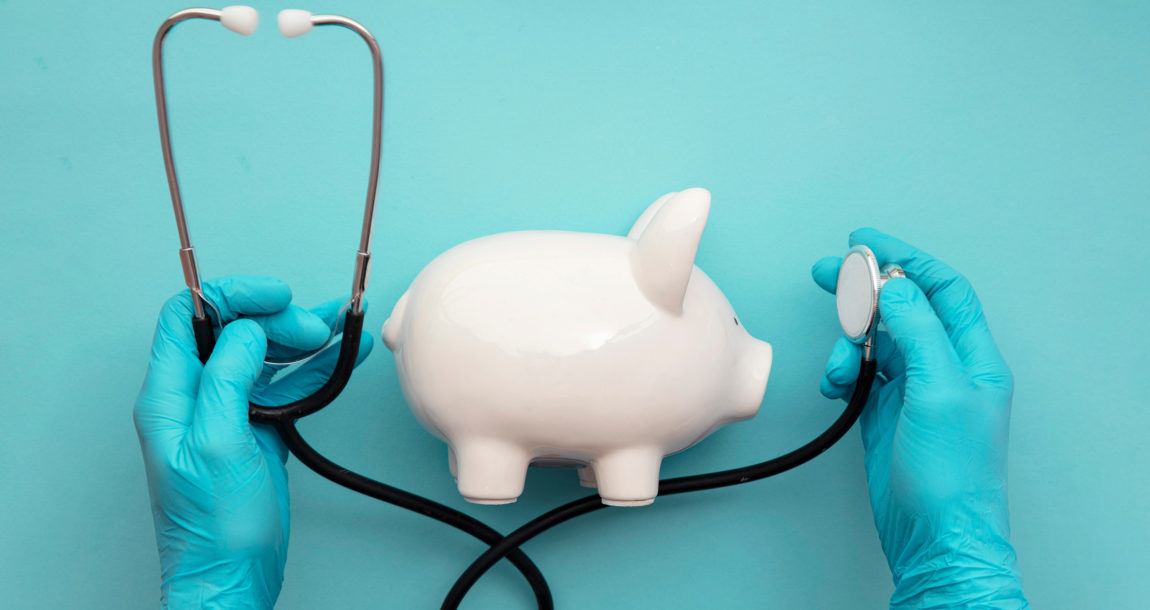Inflation Is Hitting The Poor Harder, President Of St. Louis Fed Says

"Inflation, as you know, is very hard on low- and moderate-income households" and those without investment income, Bullard said. "They're just poorer."
In his position, he's a member of the Federal Open Market Committee, the Federal Reserve's monetary and policy-making body. He votes on interest rate increases.
He spoke in Stotler Lounge in Memorial Union, with tables filled by bankers and some academics.
The Federal Reserve is working to curb inflation by raising interest rates. In a meeting with reporters after his talk, he said he wants interest rates to hit 3.5% by the end of the year.
"Yeah, we have to move," he said.
Incomes are getting higher, but people's raises aren't keeping up with inflation, he said.
"So, they're worse off," he said.
The situation is dire for people trying to find affordable housing, Bullard said.
"I'm going to be a little bit grim here," he said.
There's high demand for housing and it's outpacing supply, driving up house prices, he said.
"This is pricing some people out of the market," he said. "Maybe a lot of people."
The labor market is a bright spot for those seeking jobs, he said.
"It's a sensational labor market from the standpoint of someone who has been marginalized and is looking for work," Bullard said.
Unemployment is at 3.6% and is likely to fall below 3%, he said.
"This hasn't happened since the 1950s," he said.
From the business side, rising labor costs caused some businesses to close, he said.
"You're going to have the best labor market in the post-war era very soon," Bullard said, referring to post-World War II.
The Federal Reserve is behind the curve in two measures he presented Thursday, but in a better position to handle inflation than other periods in the past, he said.
"In the 1970s, no one believed the Fed would ever do anything about inflation," Bullard said.
Speaking with reporters, he said he keeps a "Whip Inflation Now" button in his office as a joke. It was a project of President Gerald Ford's administration.
So far, the Fed has "barely lifted a finger," Bullard told the audience.
It is more transparent now and provides forward guidance, allowing markets to factor in Fed actions in advance.
"When you give forward guidance and say you're going to do something in the future, you have to follow through," Bullard said.
A year ago, he said he would have been confident inflation would stay at 2%, and if it rose, it would be short-lived.
"At that time, it wasn't a bad story to tell," Bullard said.
Then inflation rose in October, November and December.
"It's really just in the last five or six months you've got this kind of 'holy cow!' feature to it," he said.
Although most Americans see the affects of inflation at grocery stores and gas pumps, it's everywhere, Bullard said.
"This is a story of widespread inflation across a wide variety of goods and services," Bullard said.
It's going to be his main focus and that of all members of the Federal Open Market Committee, he said.
"We do have a serious inflation issue and we do need to move forthrightly to get it under control," Bullard told reporters.
Roger McKinney is the education reporter for the Tribune. You can reach him at [email protected] or 573-815-1719. He's on Twitter at @rmckinney9.
"We do have a serious inflation issue and we do need to move forthrightly to get it under control." James Bullard, president and CEO of the Federal Reserve Bank of St. Louis




CHINA UNITED INSURANCE SERVICE, INC. – 10-K – MANAGEMENT'S DISCUSSION AND ANALYSIS OF FINANCIAL CONDITIONS AND RESULTS OF OPERATIONS
Drivers should get $400 refunds by next month
Advisor News
- CFP Board announces CEO leadership transition
- State Street study looks at why AUM in model portfolios is increasing
- Supreme Court to look at ERISA rules in upcoming Cornell case
- FPA announces passing of CEO, succession plan
- Study: Do most affluent investors prefer a single financial services provider?
More Advisor NewsAnnuity News
Health/Employee Benefits News
- Jacobson, Hardin pitch Unicam bills on help for rural health care
- State Comptroller's audit reveals $16.2 million in improper Medicaid claim payments
- Recent Research from University of the North Highlight Findings in Opioids (Long-term Opioid Therapy and Risk of Opioid Overdose By Derived Clinical Indication In North Carolina, 2006-2018): Opioids
- Health centers brace for chance of limited funds
- Anti-LGBTQ+ policies harm the health of not only LGBTQ+ people, but all Americans
More Health/Employee Benefits NewsLife Insurance News
- 59% of insurance sector breaches caused by third-party attacks.
- Pacific Life Announces Promotions of Karen Neeley and Patricia Thompson to Senior Vice President
- Lincoln Financial Reports 2024 Fourth Quarter and Full Year Results
- 2024 Annual Information Form
- 4th Quarter 2024 Results 2024 Management's Discussion and Analysis
More Life Insurance News